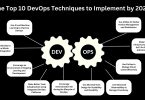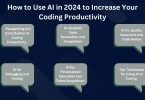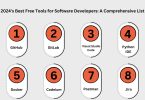Artificial Intelligence (AI) has become a game-changer in today’s cutthroat corporate world, outperforming traditional programming in solving intricate problems. Artificial Intelligence (AI) uses data-driven algorithms in place of explicit instructions and predetermined rules to analyze data, spot trends, and make decisions on its own. This article highlights the incomparable benefits of artificial intelligence (AI) by examining certain commercial cases where it outperforms traditional programming.
AI’s advantages for businesses:
Artificial intelligence has various advantages over traditional programming.
- Automation of Boresome operations: Artificial intelligence (AI)-powered solutions automate boring and repetitive operations, greatly increasing operational efficiency and cutting expenses.
- Data analysis: Artificial intelligence (AI) technologies can process and analyze massive amounts of data to uncover insightful information that enables businesses to take prompt, decisive action.
- Personalization: AI makes it easier to have tailored conversations with consumers, which improves their experience and level of engagement with a business.
Use Cases for AI That Succeed
1. Help and Encouragement for Clients:
Artificial intelligence (AI)-powered chatbots and virtual assistants are transforming customer service by instantaneously and continuously answering to customer inquiries. These systems make efficient use of Natural Language Processing (NLP) to comprehend and resolve user difficulties. They get better at responding as a result of encounters over time, which lowers the need for human involvement.
Important Uses:
- Quick Reaction: Offers clients prompt support.
- Scalability: Able to handle numerous queries at once.
- Cost-effectiveness: Minimizes the requirement for a sizable staff to provide customer service.
2. Analytics for Predictive:
Predictive analytics is where AI shines since it can estimate future patterns by examining historical data. Accurate forecasting can result in large cost savings and revenue increases, which makes it a vital tool in sectors like banking, healthcare, and retail.
Important Uses:
- Market Trends: Forecasting consumer behavior and market developments.
- Resource Allocation: Supply chain efficiency and inventory management.
- Recognizing possible hazards and opportunities is the basis of risk management.
3. Data Analysis and Decision-Making:
Artificial intelligence (AI) systems can examine complex datasets to uncover hidden correlations and patterns that traditional programming would miss. This skill improves decision-making by offering more precise analysis and in-depth insights.
Important Uses:
- Speed: Handles huge datasets instantaneously.
- Accuracy: Recognizes minute trends and patterns.
- Smarter company decisions and strategies are informed by strategic insights.
4. Customized Frameworks for Suggestions and Promotion:
AI-powered recommendation engines analyze user activity and preferences to provide tailored product recommendations. Conversion rates are increased and client satisfaction is raised by this tailored strategy.
Important Uses:
- Personalized content and offers are delivered, increasing engagement.
- Increased Conversion Rates: Makes product recommendations based on user preferences.
- Targeted advertising: Enhances marketing tactics to achieve optimal results.
5. Fraud detection and cybersecurity :
Artificial intelligence (AI) algorithms improve cybersecurity by examining large information to identify unusual trends and identify possible threats. They provide an extra degree of security since they can spot fraudulent activity in real time.
Important Uses:
- Threat detection finds security flaws and takes appropriate action.
- Identifying and stopping fraudulent transactions is known as fraud prevention.
- Behavioral biometrics uses distinct patterns of behavior to authenticate persons.
6. Processing of Visual Content:
AI is capable of processing images and videos, which has applications in a number of industries like manufacturing, security, and healthcare. Robots can interpret and assess visual input thanks to AI’s subset of computer vision.
Important Uses:
- Medical imaging uses image processing to help with disease diagnosis.
- Quality control checks products for manufacturing flaws.
- Security is improved by surveillance, which uses real-time data collection and processing.
7. Medical Services:
AI is revolutionizing healthcare by supporting medication research, patient monitoring, and medical diagnostics. Predictive analytics aids in early disease identification and individualized treatment regimens, and AI-driven diagnostic technologies analyze medical pictures with extreme precision.
Important Uses:
- Accurate Diagnostics: Increases the precision with which diseases are identified.
- Real-Time Monitoring: Offers ongoing patient observation.
- Quicker drug discovery reduces the time and cost involved in developing new drugs.
In summary:
Artificial Intelligence performs better than traditional programming in numerous intricate commercial situations. It is a vital tool for contemporary enterprises due to its capacity to handle massive volumes of data, adjust to new information, and make decisions on its own. Artificial intelligence (AI) offers major benefits that can spur innovation and help businesses stay competitive in today’s fast-paced business environment. These benefits range from bettering customer service to streamlining operations and boosting decision-making. If companies want to thrive in the digital era, they must use AI technology.








